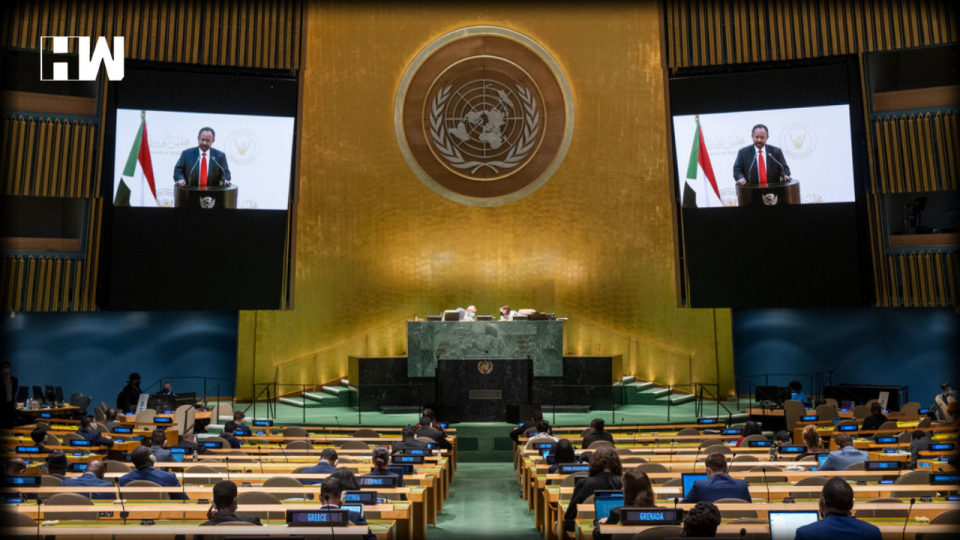Sudan continues the path to democracy, two years after the revolution that “carried the aspirations of our people for freedom, peace and justice”, Prime Minister Abdalla Adam Hamdok told the UN General Assembly on Saturday.
The revolution began in December 2018, leading to the April 2019 overthrow of former President Omar Al-Bashir, who had ruled for three decades.
‘A common goal’
In a pre-recorded statement, Prime Minister Hamdok said Sudan’s transitional government continues to implement policies in areas such as rule of law, human rights and economic reform, while also launching social protection programmes to protect the most vulnerable citizens.
“These programmes and these policies underpin a common goal, and that is building a safe and stable Sudan where everyone lives in peace, prosperity freedom and justice, as expressed in the slogans of the glorious revolution of December,” he said, speaking through an interpreter.
Sudan is also striving to improve security in the volatile Darfur region, he added, through implementation of a 2020 accord between the authorities and key armed groups, which was signed in Juba, capital of neighbouring South Sudan.
Support host communities
Regarding humanitarian issues, the Prime Minister said his Government has “rapidly lifted” constraints and obstacles hindering aid delivery in conflict areas, but he called for greater international support to address the situation of refugees and local communities hosting them.
“Sudan, given its geographical location, has witnessed a flow of refugees from neighboring countries which are facing development, economic, security and political challenges,” he said.
“Conditions in refugee camps are better than those in many host communities, so the international community needs to effectively contribute to the development of these communities as part of distributing the burden involved.”
Ongoing dam dispute
Prime Minister Hamdok also addressed the decade-long disagreement over the Great Ethiopian Renaissance Dam (GERD), set to be the largest hydroelectric power project in Africa.
Ethiopia began building the dam in 2011, and the African Union (AU) has been leading negotiations between the country, Egypt and Sudan.
In July, the UN Security Council convened its second meeting on the issue, after Ethiopia announced the dam had begun to fill again. In his briefing to the Council, UN Special Envoy for the Horn of Africa, Parfait Onanga-Anyanga, reported recent talks had yielded little progress.
While rejecting “all unilateral measures”, Mr. Hamdok said “we are ready to participate in any peaceful initiative bringing all parties together to reach an agreement in all parties’ interest.”
‘A new phase’
Despite the recent progress, Sudan still needs international support, the Prime Minister said. He thanked countries, including those that have offered debt forgiveness, and pointed to lessons learned from the hybrid AU-UN mission in Darfur, UNAMID, which concluded its mandate last December.
A follow-on mission, UNITAMS, has launched “a new phase”, he said, expressing hope that it will contribute to building peace.
Full speech, in Arabic, linked here.
As an independent media platform, we do not take advertisements from governments and corporate houses. It is you, our readers, who have supported us on our journey to do honest and unbiased journalism. Please contribute, so that we can continue to do the same in future.

